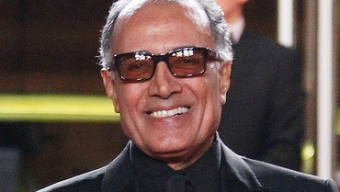جشنواره ۶۵ کن در می ۲۰۱۲ همچون چند سال اخیر استقبال زیادی از فیلمهای ایرانی نکرد و عملا جز یک فیلم (یک خانواده محترم) ساخته مسعود بخشی، فیلم بلند دیگری از ایران در آن حضور نداشت. با این حال دو اتفاق دیگر ارتباط این جشنواره با ایران را تقویت کرد. اولی حضور آخرین ساخته عباس کیارستمی با عنوان «همچون یک عاشق» فیلمبرداری شده در ژاپن بود و دیگری حضور لیلا حاتمی به عنوان معرفی کننده برنده یکی از مهمترین جوایز جشنواره. در این صفحات مرور کوتاهی داریم بر حضور ایران و ایرانی در کن ۲۰۱۲٫
همچون یک عاشق
Like Someone in Love
نویسنده و کارگردان: عباس کیارستمی
«همچون یک عاشق» نیز فیلمی درباره عشق، از منظر سه آدم کاملا متفاوت است. فیلم به رابطه یک دختر دانشجو (که به خاطر نیاز مالیاش خودفروشی میکند) و یک استاد پیر دانشگاه میپردازد که میخواهد تنهایی شبانهاش را با زنی، پر کند. از طرف دیگر او دوست پسری دارد که دیوانهوار عاشق اوست و از بیاعتناییاش به تنگ آمده و با او در کشمکش است.
همچون یک عاشق، شاید در مقایسه با کارهای دیگر کیارستمی، اثر برجستهای نباشد اما همه نشانههای سینمای کیارستمی، از سادگی طرح و نقطهگذاری در روایت گرفته تا ریتم درونی آرام و پرهیز از دراماتیک شدن را در خود دارد. به علاوه نگاه فلسفی کیارستمی به زندگی و نسبیگرایی او نیز در سرتاسر فیلم جاری است.
کیارستمی فضاهای داخلی کافه و آپارتمان پیرمرد را خیلی خوب درآورده و با تم موسیقی “الافیتزجرالد” که عنوان فیلم از آن گرفته شده، دنیای متفاوت آدمهای عاشق فیلم را به خوبی به هم ربط داده است.
پرویز جاهد/ بیبیسی فارسی
After deconstructing a would-be romance in the Tuscany-set “Certified Copy”, Iranian auteur Abbas Kiarostami takes another trip abroad to explore the depths of unrequited desire in the Japanese drama, “Like Someone in Love”. However, this being a Kiarostami movie, the “Like” part of the title (taken from the widely covered jazz standard) is to be taken quite literally here, and this enchanting affair (of sorts) between a retired professor and a gorgeous young call girl is never exactly what it seems. Upscale art houses and admirers of the Palme d’Or laureate will be the major clients of this tenderhearted and melancholic work, provided its intentions are not lost in translation.
Where all the role-playing ultimately leads is surprising to say the least, and viewers familiar with Kiarostami’s typically serene dramas will have another thing coming to them. Whether such a denouement ultimately convinces is another matter, and while it certainly represents an intriguing change of pace for the filmmaker, it takes things so far as to make one wonder whether the means entirely justify the ends here.
Editing by the director’s son, Bahman Kiarostami, allows the performances to play out in uninterrupted takes, and the three principals — especially Okuno, who provides a deliciously deadpan mix of reverie and wisdom — acquit themselves extremely well. If the subtlety of the direction recalls the late work of Yasujiro Ozu (to whom this movie can in some ways be considered a homage), Kiarostami still manages to pull the “slow cinema” rug out from under us by literary ending things with a bang.
Jordan Mintzer/ Hollywood Reporter
مطالب مرتبط

قصه
نوامبر 24, 2016
گزارش شاهنامه از اسطورهی ضحاک
نوامبر 24, 2016
چه کسی این بلا را سر شهر آورده است؟!
نوامبر 04, 2016
گنجشک کوچولو و پرندگان شکاری
نوامبر 04, 2016
قلک
نوامبر 04, 2016
درخشش روح امیدوار ایرانی در تیرگان
جولای 24, 2013





























































